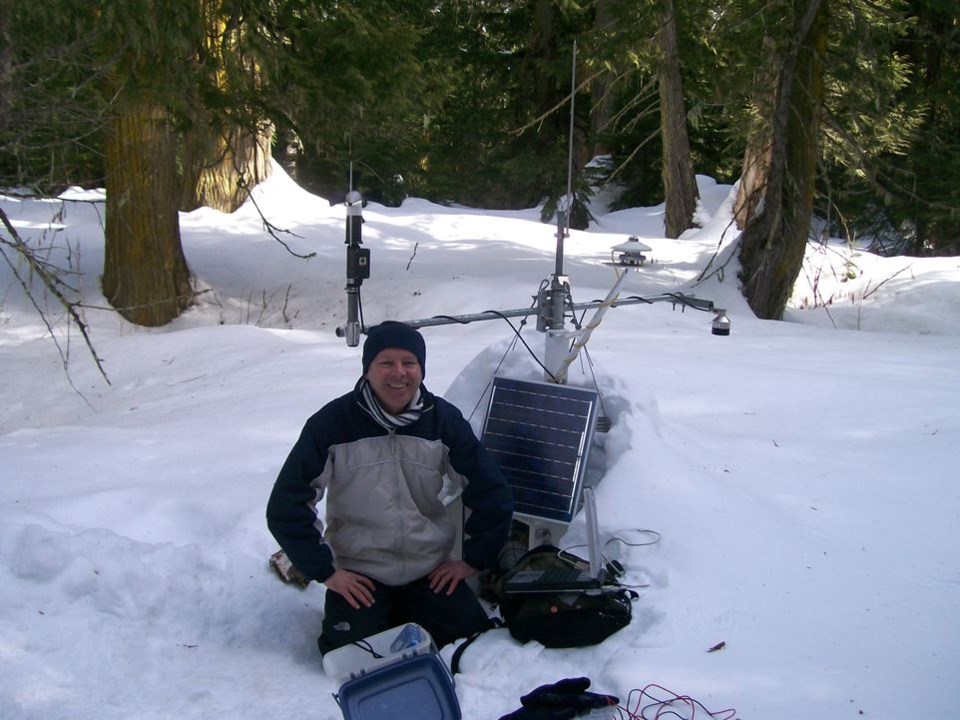A new study shows the volume of the mountain snowpack feeding B.C.'s largest watershed has dropped by almost one fifth over a six-decade period.
That snow used to supply the vast majority - 70 per cent - of the Fraser River Basin's annual flow.
Now that's dipped to half, with the rest made up of rainfall, according to a University of Northern B.C. study published Wednesday in Nature Publishing Group's Scientific Reports journal.
It's part of a trend of shorter, warmer winters and drier summers, thanks to rising air temperatures, shifts in rainfall timing, and a decline in snowfall. It means, on average across the basin, the snow melts 10 days earlier.
That presents problems for salmon: with less water flowing through habitats in the summer, the water warms, making it more difficult for salmon to survive.
When UNBC researchers started looking at trends in the Fraser River's daily flow, they expected to see a decline in both snowpack and snowmelt.
"I think what is shocking is just how much that has changed," said environmental science professor Stephen Dery of the 19 per cent drop.
"That's a very large decline. That's very significant."
Dery led the research over a three-year period, collecting data upstream at the Fraser River at Shelley and the Thompson River near Spences Bridge. They looked at the Fraser River's main stem and six of its major tributaries between 1949 to 2006.
Interestingly, even as the snowpack decreased, the actual volume of water entering the Fraser River has remained fairly static.
"We're seeing more rainfall than we have in the past, so it's compensating for that loss of snow," said Dery.
"There is indication that the Fraser River is now transitioning from a snow-dominated regime to a hybrid one - in other words heading more towards a rainfall-dominated system."
Rainfall can be less predictable than snowfall or snow melt, he said. Also, timing becomes an issue.
"We're seeing more streamflow happening during the winter and much less in the summer and that's our dry period," he said.
That has a direct impact on water management in cases like the Nechako reservoir, for example, with a need for storing more water in the winter to account for lower levels in the summer.
"Look at the snow conditions outside today and that's possibly what we're going to experience in the future," he said, which affects recreational use of the region for activities like snowmobiling and backcountry skiing.
It could also speak to the dropping mountain caribou populations, which depend on heavy snowpacks to reach boreal lichen, he said.
"If there's much less snow then they're going to have a hard time feeding so perhaps the decline in mountain caribou may actually be associated with this decline in snowpacks."



